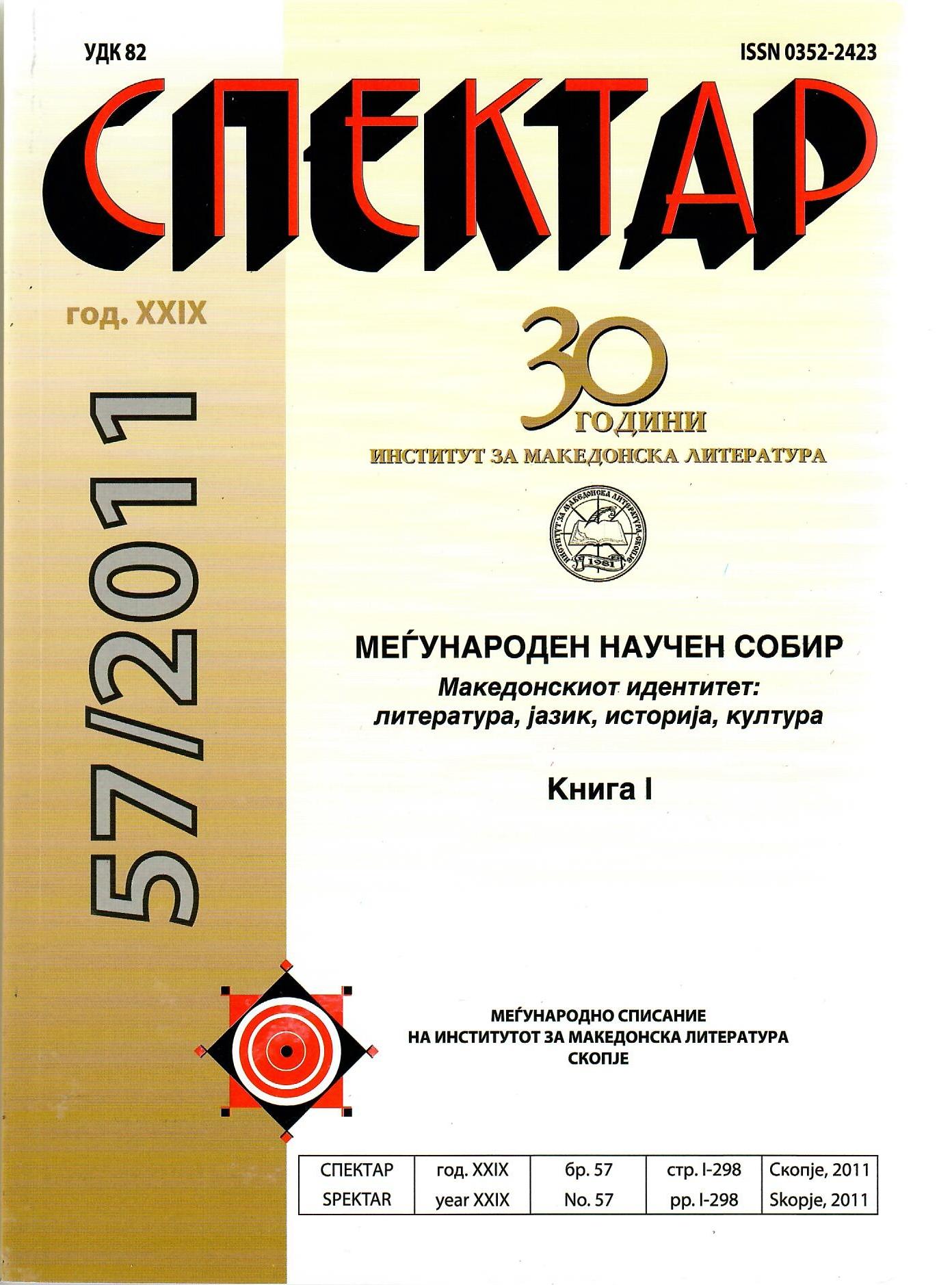ЕПИТАФОТ НА ПЕЈЧИНОВИЌ – ПЕСНА ВРЗ КАМЕНОТ ИЛИ КАМЕН ВРЗ ПЕСНАТА
THE EPITHAPH OF PEJCINOVIC - A POEM OVER THE STONE OR A STONE OVER THE POEM
Author(s): Dijana PetrovskaSubject(s): Historical Linguistics, Macedonian Literature
Published by: Институт за македонска литература
Keywords: Macedonian language; national awareness; graphemes; punctuation marks; a unique transcription of the Epitaph; metrical analyses of the Epitaph; neon; trochee; dactyl; amphibrach; rime
Summary/Abstract: As his own antecedents, damaskinars, Pejčinović calls his writing language „prostij“ or „preprostjaishij“ (simple), because he uses the folks language for literary purpose. He lived in time when Macedonian people were depressed in its own national development, when a clear differentiation in nationality determination in our people cannot be made, a built national awareness, although naturally there were certain speaking or other differences among different south-Slovakian ethnical groups. The language which was used by Pejčinović was the Macedonian one spoken in that time in the Tetovo region, to be precise in Leshok. It is close to the existing Macedonian language not to the Bulgarian. It differs from the existing Macedonian language in the same way the Bulgarian language from the 19th century differs from the existing Bulgarian. Parts of the letters were borrowed from the Russian or church Slovakian alphabet, not from the Bulgarian one. Pejčinović’s epitaph is a symbiosis of the church style with the folk. The sentences used in the Epitaph give a higher, festive tone of the speech, approaching the poem near the taste of the ordinary man of the people. Through this Epitaph Pejčinović left us a need - a testimony of his own wish to see his language graven in a stone and written in a book. With his conciseness he raised above his own time and surroundings. He got really close to being a national leader of the national revival. He was aware of the condition of his own people, he pledged for a bigger enlightenment of the people and he didn’t stay indifferent, he contributed for our people, for our national history, revival and cultural history. Pejčinović left followers and students to continue his started work of cultural-educational rise of the people and infiltration through the darkness which heavily pressed our people in Macedonia.
Journal: Спектар
- Issue Year: 2011
- Issue No: 57
- Page Range: 129-139
- Page Count: 11
- Language: Macedonian

